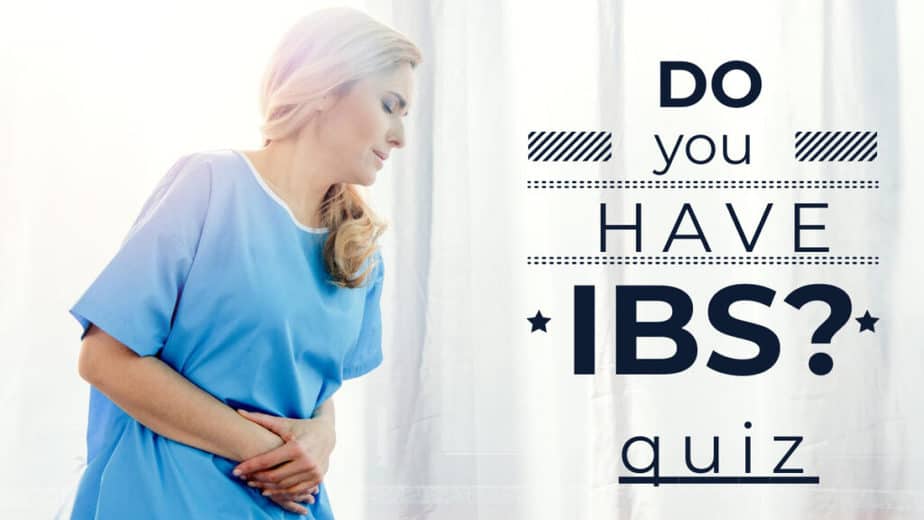IBS is a condition that presents a little bit differently in everyone.
Some people will gain weight while others will find themselves losing weight. It is a fairly common condition, affecting an estimated 20% of U.S. adults.
If you are suffering from IBS, you are not alone. With the correct diet and lifestyle changes, it is a manageable condition.
IBS, irritable bowel syndrome, is a condition affecting the digestive tract, with abdominal pain associated with constipation or diarrhea. Other symptoms of IBS include bloating, nausea, trapped gas, and flatulence.
It is not known exactly what causes IBS, and currently there is no cure. There are theories that IBS develops as a result of impairments in the normal interaction/signaling between your brain and your gut.
The condition is known to be exacerbated by stress and anxiety.
The treatment for IBS is all about management. Trigger foods for IBS flare-ups should be identified and eliminated. Unfortunately, everyone is different. Some may have 1 or 2 trigger foods, while others have many.
How Does IBS Cause Weight Gain?
Some people with IBS are only able to eat certain foods to avoid worsening their symptoms. These foods can sometimes be nutritionally void and high in calories.
Regular or over-consumption of foods like this can lead to individuals eating more calories than they require. Over time, this will lead to weight gain.
IBS symptoms can be very severe and impact your ability to perform daily tasks. For this reason, many people find it hard to exercise sufficiently.
Exercise is important to maintain a good state of physical and mental health and combating the excess calories.
Leading a sedentary life is known to lead to weight gain. Some IBS sufferers may find that running triggers symptoms such as bouts of diarrhea. If this is the case, there are many other forms of exercise that you can partake in. If you love running, decreasing the intensity and duration or slowing the pace may help reduce symptoms.
There is research suggesting that being overweight can exacerbate IBS symptoms. It is theorized that this is due to hormones found in the digestive tract.
There are several hormones responsible for weight regulation in the body, and are commonly seen at abnormal levels in people with IBS. They also play a role in hunger regulation, which can lead to overeating.
IBS can also lead to severe bloating. This can make people look or feel as though they have gained weight, even though this might not necessarily be the case.
What Is Bloating?
People often assume that bloating is caused by excessive trapped gas, but this is not always the case.
Experts assume that the reduced motility of the intestines combined with an overgrowth of bacteria in the small intestine and the inflammation of the intestinal lining resulted in the bloated appearance.
Bloating will commonly last for hours to days. It will often feel as though your stomach is distended and under a lot of pressure. Sitting and certain movements can be uncomfortable. Some people say they feel or look like they are “9 months pregnant!”
It will often begin soon after you have eaten, especially if you have consumed a large meal or high FODMAP foods. Bloating is most commonly worse in the evenings and tends to improve by the morning.
Learn more about Tightness in Abdomen.
How Can You Reduce Bloating?
One of the best ways to reduce bloating is to eat more slowly and mindfully. There are many theories as to why this works, although the precise reason is not known.
There is an overwhelming amount of anecdotal evidence in support of this theory.
You may also choose to take some form of digestive supplement, like Beano for example. These can help you to absorb indigestible carbohydrates, reducing the strain that is placed on the intestine.
These are particularly useful if you are consuming foods high in FODMAPs. These supplements are readily available over the counter at most drugstores.
Salt is known to cause water retention in the body. This can lead to your stomach becoming distended, giving the appearance of bloating. With fluid retention related to salt, you may also notice leg or ankle swelling, which can get better if you prop your feet up.
Try to limit the quantities of sugar and salt in your diet. If you know you have eaten a lot, try to drink a little more water than usual.
This helps to dilute the content in your body and clear the excess out of your system.
- Related article: Can IBS Make You Retain Water
How Does IBS Cause Weight Loss?
One of the most common symptoms of IBS is painful abdominal cramping. In severe cases, this can greatly decrease the appetite of the individual. IBS sufferers may also have a concurrent eating disorder called avoidant restrictive food intake disorder (ARFID).
The severe gastrointestinal symptoms can cause a person to choose not to eat to avoid exacerbating symptoms which leads to weight loss.
IBS generally does not lead to significant weight loss (or if the weight comes off, it goes back on with very little effort).
If you do notice yourself losing weight without trying, then this may be as a result of another underlying condition such as inflammatory bowel disease or Celiac disease or a psychiatric disease like anorexia nervosa or ARFID.
Learn more in this article: Can IBS Cause No Appetite?
What Foods Should You Avoid For IBS?
There are a few foods known to worsen the symptoms of IBS. Dairy, alcohol, and caffeine should be avoided. Many artificial sweeteners like xylitol and sorbitol should also be avoided.
- Related Articles: Best Alcohol for IBS
- Coffee Effects on Gut Health
- What Tea is Good for IBS
Cruciferous vegetables, beans, and cabbage are all known to increase gas and bloating. These are high FODMAP foods. The FODMAP diet can be used to identify trigger foods.
High FODMAP foods should not be regularly consumed if you suffer from IBS. High fat and fried foods can also worsen symptoms.
What Dietary Changes Can You Make For IBS?
It is often recommended that IBS sufferers eat a high fiber diet. The fiber content should be gradually increased over time to avoid causing more gas and bloating.
A good rule of thumb is to add in 2 to 3 grams of fiber daily and be sure to stay well hydrated. The recommended daily intake of fiber for an adult is around 25 to 30 grams a day.
It is also advised to spread your meals out more, eating smaller meals more often. Large meals can be harder for your body to digest leading to fullness, nausea and bloating. Smaller meals reduces the strain on your digestive tract.
It is recommended that you incorporate whole-grain carbohydrates into your diet. You should also keep your fat intake low.
The best option will be to consult a dietician if you can. They are highly trained professionals and will be able to offer you personalized nutritional advice and are likely to supply you with a meal plan.
What Is A Low FODMAP Diet?
FODMAP is an acronym for fermentable oligo-di-monosaccharides and polyols.
These are types of sugars that are known to be more difficult to digest. To reduce the symptoms of IBS, it is recommended that these are avoided, or significantly limited.
Fructans are sugars found in garlic, onions, and wheat. Fructose is found in pears, blackberries, and apples. Galactans are sugars found in soy, lentils, and beans. Lactose is a dairy sugar. Polyols are alcohol sugars such as sorbitol and are also found in plums and peaches. All of these foods should be avoided as they are known to make IBS symptoms worse.
There are many foods that you can still consume on a low FODMAP diet. Some examples of suitable fruits and vegetables include bananas, grapes, pineapples, strawberries, blueberries, grapes, oranges, carrots, green beans, cucumbers, kale, lettuce, squash, tomatoes, and potatoes.
Suitable sweeteners include maple syrup, cane sugar, and brown sugar. You can also consume non-dairy alternatives or a lactose-free dairy product.
Lean proteins such as turkey, chicken, fish, and eggs are also suitable for people following a low FODMAP diet.
Learn more about Low FODMAP Diets for IBS.
Here are some related articles on weight loss and weight gain:


